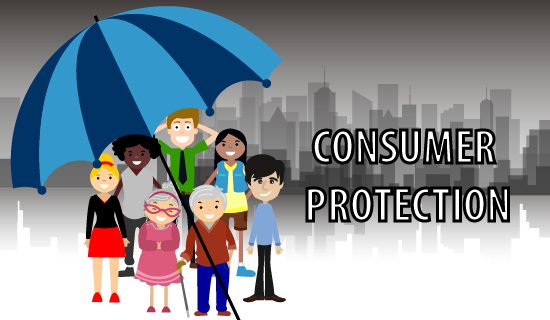Know Your Rights – FDCPA Protects Consumers

If you are an American with overdue bills, you usually will find yourself doggedly pursued by some sort of debt collector with a barrage of threatening letters and relentless phone calls. Commencing debt negotiation to stop creditor harassment and ultimately achieve debt settlement is often a good road for many consumers to travel. However, if the debts continue to be unpaid, you will end up in court being sued by collectors who hope to win a judgment; allowing them to assign or garnish your wages, or seize your assets.
In fact, consumers have been reporting many outrageous acts committed by overly aggressive, abusive bill collectors to the FTC (Federal Trade Commission), the agency charged with the promotion of consumer protection and the elimination and prevention of what regulators perceive to be harmfully anti-competitive business practices. Consumers have recorded everything from collectors letting loose a slew of obscenities, to one who threatened to burn a consumer’s house down.
The FTC enforces the Fair Debt Collection Practices Act (FDCPA). The Act covers personal, family, and household debts, including money you owe on a personal credit card account, an auto loan, a medical bill, and your mortgage. The FDCPA doesn’t cover debts you incurred to run a business.
The purpose of the FDCPA is to eliminate abusive practices in the collection of consumer debts and to provide consumers with a way to dispute and obtain validation of debt information in order to ensure the information’s accuracy. The FDCPA defines the rights of consumers involved with debt collectors, creates the actual guidelines under which debt collectors may conduct business, and prescribes penalties and remedies for violations.
 Consumers who, often as first-time plaintiffs, find themselves unable to pay debts and feel aggressive collectors have gone too far and wronged them with their tactics and actions are resorting to legal actions against the debt collectors, and some are winning big. Many of the cases are consumers who sue over technical violations.
Consumers who, often as first-time plaintiffs, find themselves unable to pay debts and feel aggressive collectors have gone too far and wronged them with their tactics and actions are resorting to legal actions against the debt collectors, and some are winning big. Many of the cases are consumers who sue over technical violations.
Debt collectors may be in violation of the FDCPA when they do any of the following:
- Leave abusive voicemail messages.
- Leave voicemail messages without giving the name of the caller, company and purpose of the call.
- Insult, yell or use abusive language.
- Threaten lawsuits, arrest, or that they will seize your property.
- Threaten to garnish your wages.
- Deceptively claim that partial payments would settle debts in full.
- Claim that negative information would stay on the debtor’s credit reports until debts were paid.
- Call neighbors, family, friends, your employer or other third parties about your debt.
- Call you at work when you told them not to call you at work.
- Call you at a time that they know is inconvenient for you.
- Threaten the use of violence against you, your reputation, or your property.
- Withdraw funds from bank accounts or charge credit cards without your consent.
- Communicate further with you after you tell the debt collector that you refuse to pay the debt except to write one more letter to you.
- Falsely imply that he or she is an attorney or falsely imply that any communication is from an attorney.
Document Debt Collector’s Contact Activities
Save any letters or notices you receive from collection agencies and debt collectors. It’s also very important to save any voicemails you receive from a collection agency or debt collector. Write down the phone number where a debt collector or collection agency is calling from and make sure to take notes regarding your conversation with the debt collector or collection agency. Most states permit the recording of telephone conversations with debt collectors, and if yours does make sure you record your telephone conversations with debt collectors. This way, should you decide to file a lawsuit, you will have the evidence needed to support your claim.
But do remember, debt collectors are hired to retrieve money owed to businesses, and they recoup tens of billions of dollars every year. The FDCPA will not protect you from having to pay your debt, only to make sure that the debt collectors are following the rules. If they are not, you may file a lawsuit. Winning may entitle you to damages as well as attorney’s fees. In addition, you might not have to pay the debt if the debt collector doesn’t have the proper paperwork.
Reporting a Debt Collector for an Alleged Violation
Report any problems you have with a debt collector to your State Attorney General’s office, the FTC, and the Consumer Financial Protection Bureau. Many states have their own debt collection laws that are different from the federal Fair Debt Collection Practices Act. Your State Attorney General’s office can help you determine your rights under your state’s law.
Please Note: This information is for educational purposes only. For specific advice, please contact a qualified professional.



 Login
Login






